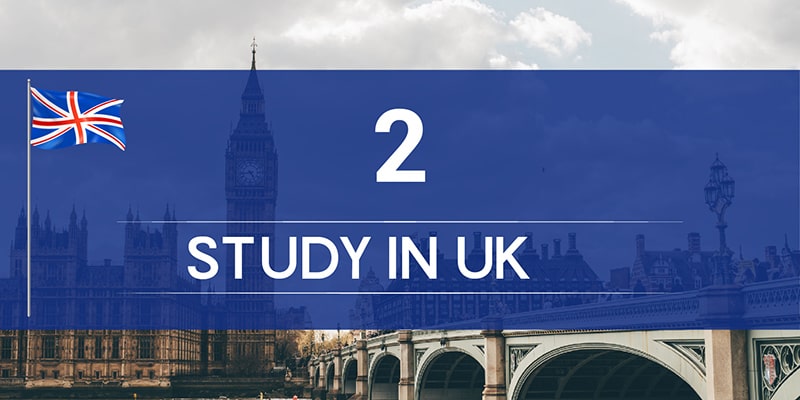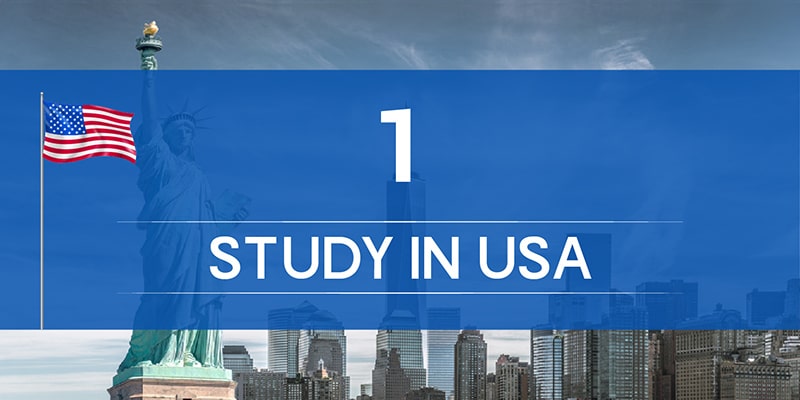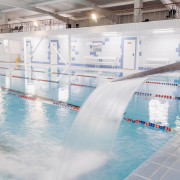Иммиграция в канаду через учебу: путь от студента до гражданина канады
Содержание:
- What Are the Conditions of a Canadian Study Permit?
- Terms and conditions
- Список востребованных профессий по различным иммиграционным программам в Канаду
- Study in UK
- Особенности трудоустройства
- Regularly scheduled breaks
- Veterinary Technician Assistant Diploma Program
- Study in USA
- Практика в Сингапуре: жизнь на $1500 и deep learning
- Work in Canada – Facts You Need To Know
- Учеба в Канаде открывает новые перспективы в устройстве на работу, каръерном росте и может стать важным шагом при получении канадского гражданства.
- Список лучших профессий для иммиграции в Канаду в 2021 году (с зарплатами)
- Лучшие работодатели в Канаде 2021
- Плюсы и минусы программы
What Are the Conditions of a Canadian Study Permit?
There are certain terms and conditions attached to a Canadian study permit. You must respect these conditions in order to retain all the benefits of your study experience.
- You must be enrolled at a designated learning institution (DLI)
- You must be enrolled as a part-time student, or a full-time student if studying in Quebec
- You must not take any authorized leaves longer than 150 days from your program of study
It is important to understand and respect the terms of your study permit. In doing so, you will get the most out of your study abroad experience in Canada. Students who respect the terms of their study permits also have a better chance of being granted a post-graduate work permit.
Terms and conditions
The following terms and conditions must be met during the period of the scholarship.
The Canadian post-secondary institution must:
- be a Designated Learning Institution (DLI);
- waive tuition and/or administrative fees for scholarship recipients, as selected students must be registered full-time and paying tuition to their home institution;
- inform both the candidate and their home institution of any mandatory fees that, in exceptional cases, cannot be waived, prior to applying for a scholarship on the candidate’s behalf;
- enter into an agreement with the recipient stating that:
- funding for the scholarship is provided by the Department of Foreign Affairs, Trade and Development (DFATD);
- the recipient must provide the Canadian institution with records to account for major expenses such as travel and lodging; and
- the recipient agrees to have their contact information shared with DFATD, for reasons such as: to be invited to join the Government of Canada Scholars’ Alumni Association (GCSAA), to attend events organized by the Canadian Embassy, High Commission or Canadian Trade Office in their home country/territory and by DFATD in Canada, or for promotional and statistical purposes; and
- submit qualitative and quantitative reports during the scholarship period.
Scholarship recipients:
- must engage in full-time studies or research as defined by the Canadian institution;
- must be proficient in the language of instruction at the Canadian institution (English or French) before their arrival in Canada, as the scholarship does not cover language training. Language requirements are set by each Canadian institution;
- may not hold any other scholarship granted by the Government of Canada;
- carrying out a semester-based study exchange must arrive in Canada by September for the fall semester or by January for the winter semester;
- conducting research must arrive in Canada for the uptake of their award between June 1, 2021 but no later than February 1, 2022. Failure to arrive during this time may result in the cancellation of the scholarship. In exceptional cases, and with prior approval from DFATD, the arrival deadline may be extended to March 1, 2022;
- enrolled in pharmacy, medicine, dentistry or other health fields are excluded from clinical training or clinically-oriented research involving direct patient-care;
- must ensure that they have appropriate health insurance for the full duration of the scholarship, as per the policies of the Canadian institution;
- must focus primarily on full-time studies or research during their stay in Canada; and
- are expected to return to their home institutions after the scholarship period in order to complete their studies.
Important information:
- Applications at the college or undergraduate levels must be accompanied by a valid student exchange agreement between the Canadian institution and the candidate’s home institution. The agreement must state that tuition fees are waived for scholarship recipients. College or undergraduate applications for research traineeships or internships at Canadian institutions with no exchange agreements or MOUs with the candidates’ home institutions are also accepted. Such applications must be accompanied by a letter issued by the Canadian institution’s international office or equivalent, linking the application to a specific international research collaboration, naming the Canadian supervisor who has agreed to mentor the student during the scholarship period, and confirming that tuition fees, if any, will be waived for the recipient. Such a letter must be uploaded in lieu of an inter-institutional agreement.
- For graduate applications, an inter-institutional agreement is desirable but not mandatory. If there is no existing exchange agreement, graduate applications which involve a new or established collaboration between professors from a Canadian institution and the candidate’s home institution will be accepted.
- Applications submitted directly by a candidate or their home institution will not be accepted.
- Scholarships cannot be deferred and are not renewable.
- Scholarships are not taxable for either the Canadian institution or the scholarship recipient.
Список востребованных профессий по различным иммиграционным программам в Канаду
Профессии, на которые нацелены эти иммиграционные программы, различны, но есть профессии, которые у многих были общими:
- Бухгалтерские техники и бухгалтеры (NOC 1311)
- Административные помощники (NOC 1241)
- Программисты и разработчики интерактивных медиа (NOC 2174)
- Социальные и общественные работники (NOC 4212)
- Воспитатели дошкольного образования (NOC 4214)
Востребованные профессии по иммиграционной программе BC PNP Tech Pilot
| NOC | Профессия |
| 0131 | Управляющие операторами связи |
| 0213 | менеджеры компьютерных и информационных систем |
| 0512 | менеджеры — издательское дело, кино, телерадиовещание и театральное искусство |
| 2131 | инженер-строитель |
| 2132 | инженер-механик |
| 2133 | инженеры по электротехнике и электронике |
| 2134 | инженеры-химики |
| 2147 | компьютерные инженеры (кроме инженеров-программистов и проектировщиков) |
| 2147 | компьютерные инженеры (кроме инженеров-программистов и проектировщиков) |
| 2171 | аналитики информационных систем и консультанты |
| 2172 | аналитики баз данных и администраторы данных |
| 2173 | инженеры-программисты и дизайнеры |
| 2174 | программисты и разработчики интерактивных медиа |
| 2175 | веб-дизайнеры и разработчики |
| 2221 | биологические технологи и техники |
| 2241 | технологи и техники в области электротехники и электроники |
| 2242 | техники электронного обслуживания (бытовая и деловая техника) |
| 2243 | техники и механики промышленных приборов |
| 2281 | Техники компьютерных сетей |
| 2282 | Техники поддержки пользователей |
| 2283 | техники по тестированию информационных систем |
| 5121 | авторы и писатели |
| 5122 | редакторы |
| 5125 | переводчики, терминологи и устные переводчики |
| 5224 | Техники вещания |
| 5225 | техники аудио и видеозаписи |
| 5226 | другие технические и координационные профессии в области кинематографии, радиовещания и театрального искусства |
| 5227 | вспомогательные профессии в области кино, радиовещания, фотографии и театрального искусства |
| 5241 | графические дизайнеры и иллюстраторы |
| 6221 | технические специалисты по продажам — оптовая торговля |
Востребованные профессии по иммиграционной программе Alberta Opportunity Stream
| NOC | Уровень квалификации | Название профессии |
| 0011 | Правоведы | |
| 0422 | Директора школ и администраторы начального и среднего образования | |
| 0423 | Руководители социальных, общественных и исправительных служб | |
| 0432 | Начальники пожарной охраны и старшие офицеры пожаротушения | |
| 0651 | Менеджеры эскорт-агентств, менеджеры массажных салонов | |
| 4031 | A | Учителя средней школы |
| 4032 | A | Учителя начальных классов и воспитатели в детских садах |
| 4154 | A | Ведущие профессиональные занятия в области религии |
| 5121 | A | Авторы и писатели |
| 5133 | A | Музыканты и певцы |
| 5135 | A | Актеры и комики |
| 5136 | A | Художники, скульпторы и другие визуальные художники |
| 1227 | B | Судебные исполнители и мировые судьи |
| 3223 | B | Стоматологические лабораторные рабочие |
| 4214 | B | Педагоги и помощники по вопросам раннего детства (только те, у кого нет сертификата в качестве работника по развитию ребенка (уровень 2) или супервайзера по развитию ребенка (уровень 3) через Alberta Children’s Services — Центр сертификации персонала по уходу за детьми) * |
| 4216 | B | Другие преподаватели |
| 4217 | B | Другие религиозные профессии |
| 5232 | B | Другие исполнители, не отнесенные к другим категориям |
| 5244 | B | Ремесленники |
| 5251 | B | Спортсмены |
| 6232 | B | Агенты по недвижимости и продавцы |
| 4411 | C | Специалисты по уходу за детьми на дому |
| 4412 | C | Надомные работники, домработницы и связанные с ними профессии |
| 4413 | C | Помощники учителей начальных и средних школ |
| 6533 | C | Работники казино |
| 6564 | C | Другие персональные услуги |
| 7513 | C | Водители такси и лимузинов и шоферы |
| 8442 | C | Охотники на пушных зверей и охотники |
| 6623 | C | Другие профессии, связанные с продажами |
| 6722 | C | Операторы и обслуживающий персонал в сфере развлечений, отдыха и спорта |
| 6742 | D | Другие профессии сервисной поддержки, не отнесенные к другим категориям |
| 8611 | D | Рабочие на уборке урожая |
| 8612 | D | Работники по озеленению и уходу за территорией |
| 8613 | D | Работники по аквакультуре и сбору урожая в море |
| 8614 | D | Шахтеры |
Востребованные профессии по иммиграционной программе Nova Scotia Demand: Express Entry
| NOC | Уровень квалификации | Профессия |
| 1111 | A | финансовые аудиторы и бухгалтеры |
| 1114 | A | другие финансовые сотрудники |
| 1123 | A | профессии в области рекламы, маркетинга и связей с общественностью |
| 1241 | B | административные помощники |
| 1311 | B | специалисты по бухгалтерскому учету и бухгалтеры |
| 2131 | A | Инженеры-строители |
| 3012 | A | Медсестры и медсестры в психиатрии |
| 3233 | B | лицензированные практические медсестры |
| 4021 | A | преподаватели в колледже и другие профессиональные инструкторы |
| 4211 | B | юридические работники и связанные с этим профессии |
| 4212 | B | Работники социальных и общественных служб |
Study in UK
|
Number of UK universities in the QS World University ranking 2021 |
Overall % of international students in UK | Best student city in UK |
| 90 | 20.9% | London |
One of the most popular destinations for studying abroad is UK. The country boasts impressive high-quality universities, historical landmarks, multicultural communities, and ample work opportunities. There is a wide range of study program options:

Top courses to study in UK
- Business and Management
- Natural Science
- Engineering
- Medicine
- Law
Study and work in UK
International students can work and study in UK if they have a Tier 4 student visa. This is the visa that is given to international students that are studying in the UK for six months or longer. The number of hours you will be able to work, which is a maximum of 10 or 20 hours per week during the study period, will depend on the type, of course, you will pursue. During the vacation period, all students with a work permit are allowed to work full time for up to 40 hours per week.
Check this out to get the knowledge of the country rules: Study in UK
Особенности трудоустройства
Часто мигранты задумываются о работе только после переезда. Бытует мнение, что официантом или продавцом можно устроиться сразу. Но это не так. Такие вакансии занимают местные жители.
Конечно, если потратить месяц или два, хорошо владеть иностранным языком, то найти работу в магазине или ресторане получится
В Канаде по одному звонку можно устроиться в сервисы по клинингу, на стройку и в отделочные бригады. Большое преимущество у опытных строителей. Они могут получать по $10000 в месяц даже без особых знаний языка.
У мигранта для легальной работы должно быть разрешение одного из трех типов:
- Обычное разрешение, по которому можно работать строго у одного работодателя в оговоренный заранее период времени.
- Открытое разрешение дает право искать работу после въезда в страну.
- Разрешение для выпускников канадских вузов позволяет трудиться в любой компании.
Кроме разрешения на руках должна быть виза временного резидента. В противном случае нарушителю грозит арест и депортация из страны.
Regularly scheduled breaks
In order to work off campus without a work permit under paragraph R186(v), students must hold full-time status during the academic session before and after their regularly scheduled break. See the regularly scheduled break section under .
Maximum duration of a regularly scheduled break
If an institution allows for back-to-back scheduled breaks, thus creating a break period longer than 150 consecutive days, students are only eligible to work off campus during the first 150 consecutive days. They cannot work for the entire break if it is longer than 150 consecutive days.
Taking into account all regularly scheduled breaks, students may only work off campus on a full-time basis for a total of 180 days during each calendar year.
Full-time or part-time course load during a regularly scheduled break
Students who are enrolled full time during the academic sessions before and after a regularly scheduled break and who decide to undertake a full-time or part-time course load during that regularly scheduled break are eligible to work off campus on a full-time basis. If a program of study does not provide for a regularly scheduled break and a student creates their own break in a program, it is considered a leave from studies, rather than a regularly scheduled break. Students who create their own break in a program are not eligible to work on or off campus during that break.
Labour actions
International students who are unable to fulfil their conditions as temporary residents due to circumstances entirely beyond their control (for instance, a school strike) during a regular academic session can, if they are eligible, still only work part time (up to 20 hours a week) off campus. In the event that a DLI goes on strike during a regularly scheduled break, international students who are eligible to work off campus may work full time only during the period that constitutes the regularly scheduled break.
Veterinary Technician Assistant Diploma Program
Granville College offers Veterinary Technician Assistant Diploma Programs to students which help them to become valued members of a veterinary practice team and work alongside animal health technicians, veterinary professionals, and shelter staff in the animal industry.
The full-time program offers you the opportunity to have the technical knowledge and practical experience you need to have a rewarding career in animal care without spending years in school.
Furthermore, apart from the lectures you get from the classrooms, you have the opportunity to participate in labs, get practical demonstrations and be part of exciting field trips to animal care settings.
Moreover, you will get hands-on training and practical experience in the Veterinary Technician Assistant field for over 27 years from an ever interactive program taught by instructors who have years of experience working in real veterinary clinics.
One good thing about Granville College, Vancouver is that you will get an instructor who will also help you get the experience you need by helping you apply your training in the real world outside the classroom.
Study in USA
|
Number of USA universities in the QS World University ranking 2021 |
Overall % of international students in USA | Best student city in USA |
| 160 | 5.5% | Boston |
The USA is a well-established country. The quality of education in the USA is one of the best in the world. Studying in USA is a dream for millions of students across the world. To study in the United States, you will require an F-1 visa, which is the one given to international students that will study a full-time program.

Top courses to study in USA
- Business
- Engineering
- Computer Science and Information Technology
- Pharmacy
- Business Analytics and Data Science
Study and work in USA
F-1 visa gives the right to work on-Campus for a maximum of 20 hours per week during the study period and up to 40 hours per week during the vacations period. Working on-Campus means that the job must be done for the institution you study in, it is done inside or outside the institution.
For more information about the country, you can check this out: Study in USA
Conclusion
Now you know the 10 best countries to study and work. Plenty of resources such as job fairs, campus jobs, online job boards etc, there are hundreds of opportunities to earn money during study abroad programs. Make your dream come true while gaining an international work experience while you are studying. Grab the opportunity of working while you are studying abroad.
Практика в Сингапуре: жизнь на $1500 и deep learning
На момент поиска стажировки я понимал, что мне нравится deep learning. COOP сотрудничает в том числе с университетами Сингапура: я подал заявку, меня выбрали – и я поехал в Сингапур. На работе я занимался исследовательской частью в Институте геномики Сингапура.
Мой проект был посвящен использовании deep learning в нахождении мутаций рака из ДНК. Этот проект будет помогать предотвращать рак на ранней стадии. Обычно я работал 8 часов в день – смотрел исследования. Атмосфера была дружеская, со мной вместе работали еще два исследователя и профессор. Работал даже по выходным, настолько сильно меня увлекла тема. Не скажу, что нас всех как-то особо мотивировали. На мой взгляд, ученые всегда работают в первую очередь из-за интереса.
Я успешно завершил работу, поэтому после мой супервайзер предложил учиться на PhD в Сингапуре. Отказался, так как хотел остаться в Канаде. К тому же эту степень нужно получать шесть лет: для меня это слишком долго.

Калифорния. Конференция по компьютерному зрению, 2019
Work in Canada – Facts You Need To Know
International students in Canada can work on or off-campus if their study visa/permit allows them to do so. Working while studying in Canada is strictly prohibited if you don’t have a legal work permit. The Canadian job market provides both full-time and part-time jobs for students in Canada. Working “On-campus” means you can work at all the buildings on your school/campus premise. If your school has more than one campus, you may only work at the campus where you’re studying.

But, if you’re working as a teaching or research assistant and if your work is related to a research grant, you can work at other locations rather than the campus you are studying. Other locations might include places like a library, hospital, or research facility associated with your school. This can be outside your campus premise too.You can work on your school campus, without a
work permit, if:
- You are a full-time post-secondary student at a:
- public post-secondary schools, such as a college or university, or CEGEP in Quebec.
- private college-level school in Quebec that operates under the same rules as public schools, and is at least 50% funded by government grants, or
- Canadian private schools that can legally award degrees under provincial law.
- You have a valid study permit, and
- You have a Social Insurance Number (SIN).
An international student studying in Canada can also work
off-campus given that he/she fulfills the criteria mentioned by the government
of Canada. Here are the criteria for working off-campus:

- You should have a valid study permit that allows you to work off-campus
- You should be a full-time student at a college/university. Or, you should be enrolled in a post-secondary academic, vocational, or professional training program, OR secondary-level vocational training program (For Quebec only)
- Your study program should be at least 6 months long and lead to a degree, diploma, or certificate
- You should have a Social Insurance Number (SIN)
During regular school semesters, you can get part-time jobs in Canada for up to 20 hours a week. And, during scheduled breaks like summer and winter breaks, you can work full-time. If your program doesn’t have scheduled academic breaks, you can’t work more than 20 hours per week.
1. There’s a Need in Canada for Educated People
Employers in Canada are in continuous search of recent graduates from universities, colleges, and schools who are interested to work and live in Canada. For this, Canada provides a wide range of immigration options such as the Provincial Nominee Program. These programs aim to help skilled foreign workers to work in Canada
2. Jobs According to Your Studies
It is very easy to find jobs according to your field of study in Canada. This is why the connection between studies and careers is seen to be very close in Canada. Researches have shown that 93% of recent graduates find a job in their chosen field of study. Programs such as the Post Graduate Work Permit (PGWP) in Canada helps eligible graduates who have completed their tertiary education at a Designated Learning Institution (DLI) to work in Canada after graduation for up to 3 years.
3. High Demand for Tech Jobs
With more than 40,000 companies in the Information and Communication Technologies (ICT) sector, Canada provides a wide range of job opportunities for tech graduates. This demand for tech jobs has resulted in tech-specific courses in British Columbia and Ontario.
4. Different Paycheck System
Unlike other countries, companies in Canada pay their employees on a bimonthly basis. This means the employees receive their paychecks on a twice a month basis.
5. Short Lunch Breaks
Lunch breaks in Canada are just 30 minutes long. Whereas, lunch breaks in most of the countries are one hour long. The lunch break is broken up into two shorter 15 minutes breaks that are taken throughout the day. This is done in order to allow the employees to get up, stretch your legs, and have a bit of a walkabout or a cup of coffee with your colleagues.
Учеба в Канаде открывает новые перспективы в устройстве на работу, каръерном росте и может стать важным шагом при получении канадского гражданства.
Диплом аккредитованного канадского учебного заведения позволяет вам приобрести навыки, которые пользуются спросом на канадском рынке, и открывают возможность получить канадский опыт работы, достаточный для получения статуса постоянного жителя. Поэтому процедура получения постоянного статуса значительно упрощена для студентов и тех кто получил канадское образование. Статистически у них больше шансов на успех и адаптацию в Канаде. Именно поэтому правительство Канады создает и активно поддерживает иммиграционные программы направленные на студентов.
Если Вы неуверены в том хотите ли Вы остаться в Канаде после получении Канадского образования – процесс обучения Вам поможет в этом разобраться. За время обучения Вы получите реалистичное представление о жизни в Канаде, климате и ее традициях, а также о возможности дальнейшего каръерного роста и трудоустройства, что поможет принять Вам хорошо взвешенное решение.
Даже если Вы примете решение не оставаться в Канаде в последствии – диплом канадских учебных заведений высоко катируется на международном рынке труда и Вам будет заметно легче устроиться на работу в Европе, США или даже Австралии. Многие страны поддерживают режим двойного гражданства и во многих случаях даже если Вы не планируете проживание в Канаде, наличие канадского гражданства заметно может заметно облечить Вам проживание и поиск работы в других странах.
Преимущества учебы в Канаде:
- возможность получить Канадский дипом специалиста
- возможность повысить уровень Английского языка.
- опыт жизни а Канаде
- опыт работы в Канаде
- возможность имигрировать по государственным программам, разработанным специально для международных студентов, обучающихся в Канаде
Иммиграционные программы при которых учеба в Канаде является важным фактором:
- Опыт работы в Канаде (CEC)
- Опыт работы в провинции Квебек (PEQ)
- Программа провинциальных номинаций (PNP)
- Атлантическая международная прграмма для выпускников
Если Вы рассматриваете учебу в Канаде как шаг к получению гражданства вам необходимо принять решение о программе образования которая поможет ускорить процесс получения визы и статуса и при этом своевременный квалифицированный совет поможет вам сэкономить время. Не все учебные программы оптимальны для этого. Вы всегда можете перевестись на другую программу обучения после получения необходимых документов. В этом процессе необходимо четко определить цель чтобы затем уверенно двигаться к ней.
Наши высококвалифицированные консультанты помогут Вам:
- Выбрать учебное заведение с оптимальной для Вас программой
- Подготовить пакет документов для поступления
- Визовое сопровождение
- Эвалюации диплома и транскриптов об образовании в Вашей стране
- Выбрать дальнейшую стратегию: продолжение обучения, получение статуса постоянного жителя
- помощь при отказе в студенческой визе (читайте статью)
Список лучших профессий для иммиграции в Канаду в 2021 году (с зарплатами)
Работа – наверное, второй по важности приоритет для тех, кто планирует иммигрировать в новую страну, сразу после поиска места жительства. Канада предлагает целый спектр карьерных возможностей в высокооплачиваемых и высококвалифицированных профессиях
Нехватка квалифицированной рабочей силы в Канаде подтолкнула федеральное правительство к созданию системы ускоренного въезда в страну для лиц с высокоприоритетными навыками. Вот список лучших профессий для иммигрантов, основанный на запросах федерального правительства в 2021 году.
Зарплата в час: $38.20 — C$49.41
Зарплата в год: $63,242- C$91,920
Зарплата в час: $40.80 — C$110
Зарплата в год: $64,862 — C$185,610
Зарплата в час: $23.17 – C$33.99
Зарплата в год: $62,188 – C$86,439
Зарплата в час: $20.10 — C$58.99
Зарплата в год: $49,196 — C$85,472
Зарплата в час: $25.62 — C$49.18
Зарплата в год: $54,278 — C$113,982
Зарплата в час: $28.70 — C$95.39
Зарплата в год: $55,666 — C$115,110
Зарплата в час: $21.20 — C$118.54
Зарплата в год: $49,324- C$93,368
Лучшие работодатели в Канаде 2021
Авторитетное издание Mediacorp опубликовало список лучших канадских работодателей в 2021. Работодатели оценивались по восьми критериям, а затем сравнивались с другими аналогичными организациями в своей области, чтобы определить, какая из них работает лучше всего. Эти критерии включают в себя:
- Физическое рабочее место
- Рабочая атмосфера и общение
- Медицинские, финансовые и семейные пособия
- Отпуск и выходные
- Связь с сотрудниками
- Контроль эффективности
- Обучение и развитие навыков
- Участие в общественной жизни
Вот некоторые из них:
- 3M Canada Company
- ABB Inc.
- Aboriginal Peoples Television Network Inc. / APTN
- Accenture Inc.
- Adobe Systems Canada Inc.
- Agriculture Financial Services Corporation / AFSC
- Alberta Health Services / AHS
- ArcelorMittal Dofasco G.P.
- Bank of Canada
Плюсы и минусы программы
 Обучение в Канаде по программе Work and Study имеет такие преимущества:
Обучение в Канаде по программе Work and Study имеет такие преимущества:
- возможность зарабатывать во время учебы;
- основа обучения – решение практических задач на основе реальных ситуаций;
- возможность получить диплом за 12 месяцев;
- получение опыта работы в команде со студентами из разных стран мира;
- возможность расширить контакты, получить рекомендации от преподавателей.
К недостаткам можно отнести:
- высокую стоимость обучения;
- ограничения по возрасту;
- возможные сложности с поиском работодателя;
- дорогую аренду жилья в мегаполисах.
Молодые люди, которые преодолеют все трудности, будут иметь реальные шансы продвинуться по карьерной лестнице сразу после получения диплома.



